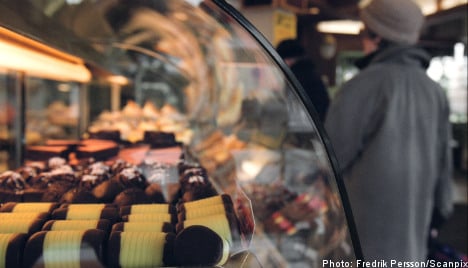“We have conducted raids at a number of addresses and have confiscated cakes,” police spokesperson Charley Nilsson told local newspaper Helsingborgs Dagblad.
The tasty treats were stolen on Wednesday night from a truck belonging to Godbiten, an Åstorp-based firm specialising in the production of traditional Swedish cakes and buns. While the driver slept in preparation for a trip to Denmark, the sweet-toothed thieves cut open the truck’s protective covering and liberated its irresistible cargo.
But the police were soon hot on their heels and were able to observe as four men began unloading Godbiten cake boxes at a store in Helsingborg at lunch time on Thursday, Helsingborgs Dagblad reports.
The store’s 29-year-old owner was placed under arrest and police were quickly able to round up four further suspects.
One of the suspects was in the process of feeding his child with Godbiten cakes when the police knocked on his door on Friday morning, a source told the newspaper.
Three men have so far been detained on suspicion of theft and handling stolen goods. Several of the suspects are known to the police and some are linked to the Black Cobra criminal gang, which began life in Denmark before spilling over the border into Sweden.



 Please whitelist us to continue reading.
Please whitelist us to continue reading.
Member comments